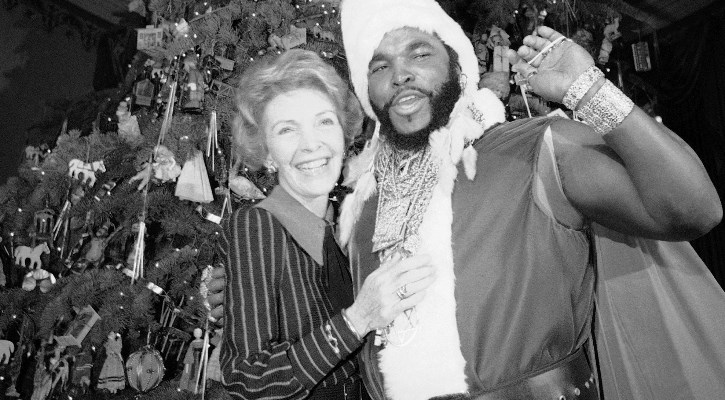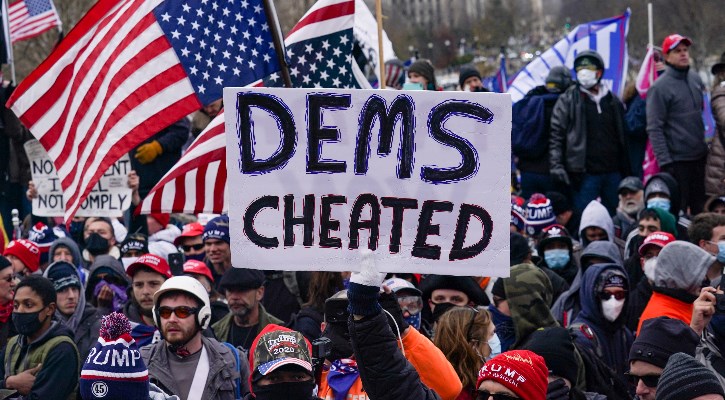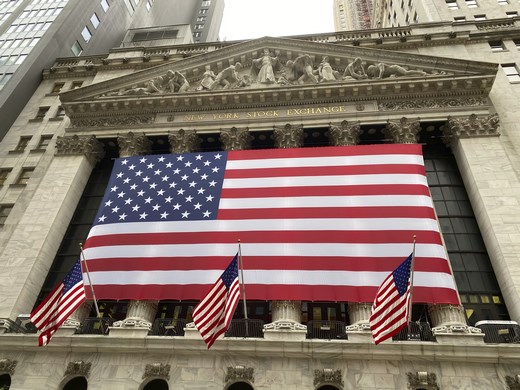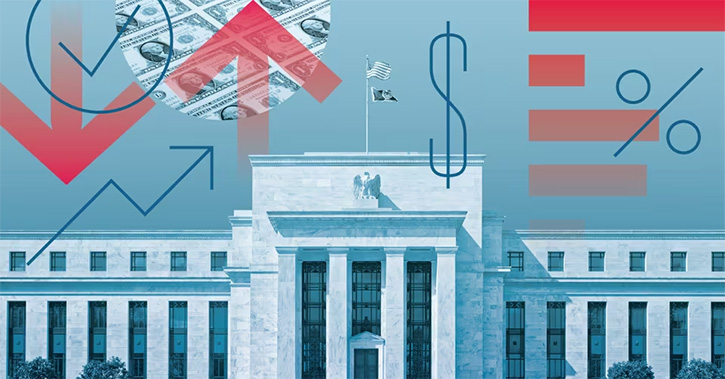
First lady Nancy Reagan invited a very special guest to the White House’s annual Christmas decoration reveal in 1983. Bedecked in an almost-glossy Santa Suit, and sporting his trademark gold jewellery, Mr T had accepted the honour of being that year’s White House Santa Claus.
The politics of the stunt were blatant. The first lady’s “just say no” anti-drugs campaign was but a year old, and, in an apparent bid to keep publicity momentum up, she invited the A-Team star along to the executive mansion to showcase its festive transformation and hand out presents.
Today, footage of the event might make you feel uncomfortable.
One participant nearly declines to sit on Santa Claus’s lap on account of the fact that he looks “so different”. To his credit, Mr T is himself doing his best to keep the event's momentum going. There is a joviality (and pomposity) to proceedings that increases when Reagan herself sits on Mr T’s lap and kisses him on the head. The press pack goes wild, their subject finally showing her “softer” side.
Damned If You Do
Christmas 2021 will not be Joe Biden’s first in the White House, but it will be his first as President, and possibly his busiest. A long-awaited presidential “Build Back Better” bill is currently making its way through congress, and amounts to a whopping $1.9 trillion spending package the President keenly observes has the endorsement of 17 Nobel prize-winning economists.
But the endorsement of economists matters less these days. The endorsement of politicians themselves is the issue. Having passed the House of Representatives, the bill must now pass the Senate, where Republican Senators have pledged to kill it, and are working to persuade “linchpin” Democrat Senator Joe Manchin to join forces.
The list of subsidies the bill facilitates is long. Funds will be made available to help lower-income students finish their college degrees, while children will get universal pre-Kindergarten (so-called “Pre-K”) care. There is even a subsidy for electric bikes.
Whether everything on the list makes it into law is a big question. Democrats will probably have to water it down to obtain Manchin’s support. The President himself has already weighed in by lobbying him personally.
But that is not the biggest problem of all. The biggest problem is timing. For all his talk of building back better, not even a man as powerful as Joe Biden can escape the perpetual, inconvenient, and uncomfortable truths offered up by coronavirus.
The pandemic, after all, is not yet over. The World Health Organisation classified the Omicron variant as a “variant of concern” on November 26. The US did the same four days later. According to the Centre for Disease Control, 23 states have already declared cases of omicron. As of 8 December, moreover, the current seven-day average of coronavirus cases reported in the US was 118,515, a 37.5% increase on the prior week. Talk of “rebuilding” is to a degree simplistic. The storm goes on.
Fed Up
Speaking of storms, the economic picture could be worse. Unemployment is not at castrophic levels. As Morningstar chief economist Preston Caldwell argued last week, while overall economic growth slowed in the third quarter, Morningstar expects a strong economic recovery to continue mostly by further recovery in the labour market.
For now, fund houses aren’t panicking. Brewin Dolphin’s chief strategist Guy Foster says there is still every reason to expect strong equity performance in the US. After all, the S&P 500, after a strong run in 2020, is up another 25% again this year.
“While our expectation of a deceleration of growth is a less positive environment for stocks than the recovery and expansion phases, deceleration is still normally positive,” he says.
“It’s also a phase in which secular growth equities tend to outperform more cyclical names. That has typically seen US outperformance, which would seem to be more than justified this time around in our view.
“The clear challenge to that would be that this style and region have already been so strong for so long. However, when we look at valuations between secular growth stocks and cyclical equities – which, admittedly, are not easy to compare – we would still expect growth to outperform during a deceleration.”

Nowhere is the issue of human experience of the pandemic starker than at the US Federal Reserve, however. It has been accused of being “more worried” about unemployment than it is the one phenomenon making everyone’s lives more difficult: inflation.
For good reason, though, says Maria Municchi, multi-asset fund manager at M&G Investments.
“Obviously there’s a huge focus on inflation at the moment, but the Fed mandate is also to promote maximum employment, and when we look at the US labour market today, there are some very interesting areas worth monitoring in the coming months,” she says.
“For example, yes the unemployment level is now relatively low, but some ethnic minorities as well as younger workers are still suffering a very high level of unemployment. Also, the participation rate is much lower than it was before the pandemic. This equates to around 5 million people having not re-entered the workforce as yet, which highlights a level of slack in the US labour market.
“Finally, we’ve seen strong evidence of wage growth over the past few months, but it’s still very much focused on lower wages and younger employees. So it’s very important to look at the US labour market in the context of the current inflation picture, because it’s another element that the Fed will take into account when deciding its future monetary policy. As it stands today, we see a Fed that is supportive of a strong, but also inclusive, labour market.”
And speaking of uncomfortable truths, Biden is also undoubtedly hamstrung by a whole host of very complex international issues. The question of the US’s military presence in the East is one, but another is the very public commitment he has made on climate change.
After the US’s withdrawal from the Paris Treaty, Biden’s pledge to re-enter the agreement was a broadly welcome u-turn.
But having talked optimistically about the case for net zero, and the opportunity of a greener US economy in the “aftermath” of Covid-19, the reality is now much more difficult.
At COP26, the President struck a somewhat graver tone, warning that time was running out. The mere question of whether he did in fact fall asleep during one of the sessions was enough to cast a shadow on the question of his leadership, however.
Action has already been forthcoming in the opening month’s of the former Delaware Senator’s tenure, with a $1 trillion bipartisan infrastructure bill, which includes $50 billion in funding to protect the US against the man-made effects of climate change.
But commentators noted at the time it would do little to curb emissions themselves, let alone provide sufficient investment to prepare for the unfolding consequences of global warming.
All the while, the situation appears to deteriorate. Just this week, Biden asked the Environmental Protection Agency to examine any potential link between climate change and the devastating tornados that have hit Kentucky. It is a reminder that one cannot lay a train track while your train is already moving, let alone speeding.
No Laughing Matter
And, as though that was not already enough, there are certain political phenomena Biden has little-to-no control over.
As a society, America looks more dangerous than ever. Traditionally, US presidents have tended to cede power to their successors gracefully, retreating to their secret service-guarded ranches and looking for purpose in charitable foundation work, or, in the case of George “Dubya” Bush, painting.
That was not the case with Donald Trump, who lingers in the American political zeitgeist like a gas, the threat of another political “masterstroke” unfortunately ever-present.

A congressional investigation into the rioting that occurred in the Capitol in January this year may be talking tough, but in many ways the damage has already been done. It is too late for prison sentences of any length to fix the bigger issue.
Try as Biden might to fight the various political battles occurring around him, then, there is no escaping the culture wars going on outside Pennsylvania Avenue. Trump now reportedly wants to launch his own social media network. There is no sign America's right is abating. January's riots were a reminder that not even the Capitol was safe.
For his part, the President has repeatedly declared the celebrity businessman and serial golf hotel owner’s antics to be some sort of joke unbecoming of a serious person, but therein lies another uncomfortable truth: the joke is deadly serious, and laughing it off will do little.
And a Happy New Year?
Nine years after Nancy Reagan’s T-shaped publicity stunt, a political operator of a different kind was trying to unseat her husband’s successor as President.
Clinton adviser James Carville had placed the words “the economy, stupid” on the wall of his boss’s Little Rock campaign office. It was intended to train campaign callers’ minds on the big issues of the day, but it eventually became de rigeur among politicos, and was certainly influencing UK electioneering as late as 2015.
Economists’ influence on political life may have lost sway somewhat, but there is no doubt the economy will be Biden’s biggest concern in 2022. Stock markets, meanwhile, continue to rise, presenting valuable investment opportunities, but also potentially further sowing the seeds of domestic inequality all too easily exploitable in the modern age of online radicalisation. Savvy investors know all good things eventually come to an end.
Is it possible for a President to balance national prosperity, recovery from a global pandemic, the growing climate change emergency, with a decidedly difficult international picture, and the prospect of civil unrest still looming large in the American consciousness? Realists would say no. Whether that is true or not, much rides on the next two weeks. If it goes wrong, Biden will have a very glum New Year indeed.




























